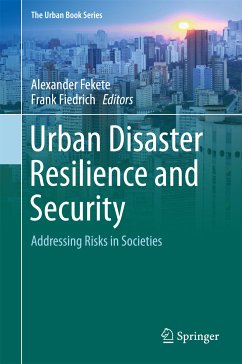
Exploring Risk Communication (eBook, PDF)
Versandkostenfrei!
Sofort per Download lieferbar
72,95 €
inkl. MwSt.
Weitere Ausgaben:

PAYBACK Punkte
36 °P sammeln!
Exploring Risk Communication presents a systematic planning approach to risk communication. Risk communication is seen by many as an important tool for managing technological, environmental, and natural risks. The book's goal is to improve risk communication processes in these areas between private and public risk communication sources and the public. The systematic planning approach focuses on research activities which are considered to be diagnostic tools providing insight into the public's reactions to risks and into the public's cognitive abilities to process risk information. These studie...
Exploring Risk Communication presents a systematic planning approach to risk communication. Risk communication is seen by many as an important tool for managing technological, environmental, and natural risks. The book's goal is to improve risk communication processes in these areas between private and public risk communication sources and the public. The systematic planning approach focuses on research activities which are considered to be diagnostic tools providing insight into the public's reactions to risks and into the public's cognitive abilities to process risk information. These studies give us the necessary ingredients for an adequate risk communication from the audience side of the risk communication process. Evaluation studies are considered necessary to monitor the effectiveness of the communication. Exploring Risk Communication provides a review of current research in risk communication, focusing on perceived trust and credibility of risk communication sources, and arguments in risk messages, risk comparison, and framing of risk. Special attention is paid to the mass media context of risks and its impact on public perception. Finally, the potential of the new interactive media for risk communication is reviewed. The authors have performed several communication studies in the risk area, working from their social psychological background. This results in a monograph interesting to those working on risk communication issues on an academic level, but the systematic planning approach is also a useful frame of reference for risk communication practitioners, or for those who are just interested in the often complex risk communication issues.
Dieser Download kann aus rechtlichen Gründen nur mit Rechnungsadresse in A, B, BG, CY, CZ, D, DK, EW, E, FIN, F, GR, HR, H, IRL, I, LT, L, LR, M, NL, PL, P, R, S, SLO, SK ausgeliefert werden.












